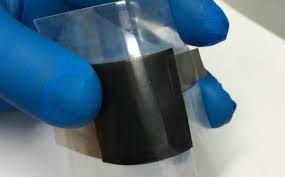
Breaking News
 Palantir kills people? But Who's Really Pushing the Buttons?
Palantir kills people? But Who's Really Pushing the Buttons?
 'Big Short' investor Michael Burry sounds alarm on AI bubble that's 'too big to save
'Big Short' investor Michael Burry sounds alarm on AI bubble that's 'too big to save
 Joe rogan reacts to the Godfather of Ai Geoffrey Hinton talk of his creation
Joe rogan reacts to the Godfather of Ai Geoffrey Hinton talk of his creation
 Shocking Scenes in Russia: Apartment Buildings Buried Under Massive Snowfall!
Shocking Scenes in Russia: Apartment Buildings Buried Under Massive Snowfall!
Top Tech News
 The day of the tactical laser weapon arrives
The day of the tactical laser weapon arrives
 'ELITE': The Palantir App ICE Uses to Find Neighborhoods to Raid
'ELITE': The Palantir App ICE Uses to Find Neighborhoods to Raid
 Solar Just Took a Huge Leap Forward!- CallSun 215 Anti Shade Panel
Solar Just Took a Huge Leap Forward!- CallSun 215 Anti Shade Panel
 XAI Grok 4.20 and OpenAI GPT 5.2 Are Solving Significant Previously Unsolved Math Proofs
XAI Grok 4.20 and OpenAI GPT 5.2 Are Solving Significant Previously Unsolved Math Proofs
 Watch: World's fastest drone hits 408 mph to reclaim speed record
Watch: World's fastest drone hits 408 mph to reclaim speed record
 Ukrainian robot soldier holds off Russian forces by itself in six-week battle
Ukrainian robot soldier holds off Russian forces by itself in six-week battle
 NASA announces strongest evidence yet for ancient life on Mars
NASA announces strongest evidence yet for ancient life on Mars
 Caltech has successfully demonstrated wireless energy transfer...
Caltech has successfully demonstrated wireless energy transfer...
 The TZLA Plasma Files: The Secret Health Sovereignty Tech That Uncle Trump And The CIA Tried To Bury
The TZLA Plasma Files: The Secret Health Sovereignty Tech That Uncle Trump And The CIA Tried To Bury
Researchers achieve a 10x supercapacitor energy density breakthrough

They could completely erase the Achilles heel of electric vehicles – their slow charging times – if they could hold more energy. And now Chinese and British scientists say they've figured out a way to store 10 times more energy per volume than previous supercapacitors.
A team split between University College London and the Chinese Academy of Sciences has released a study and proof of concept of a new supercapacitor design using graphene laminate films and concentrating on the spacing between the layers, the researchers discovering that they could radically boost energy density when they tailored the sizes of pores in the membranes precisely to the size of electrolyte ions.
Using this design, the team says it's achieved a massive increase in volumetric energy density. Where "similar fast-charging commercial technology" tends to offer around 5-8 watt-hours per liter, this new design has been tested at a record 88.1 Wh/l. The team claims it's "the highest ever reported energy density for carbon-based supercapacitors."
That figure is toward the high end of what a typical lead-acid battery stores, but while lead-acid batteries charge very slowly and offer fairly low power density, the supercapacitors can charge very, very quickly and offer massive power densities around 10 kilowatts per liter.

 Nano Nuclear Enters The Asian Market
Nano Nuclear Enters The Asian Market


